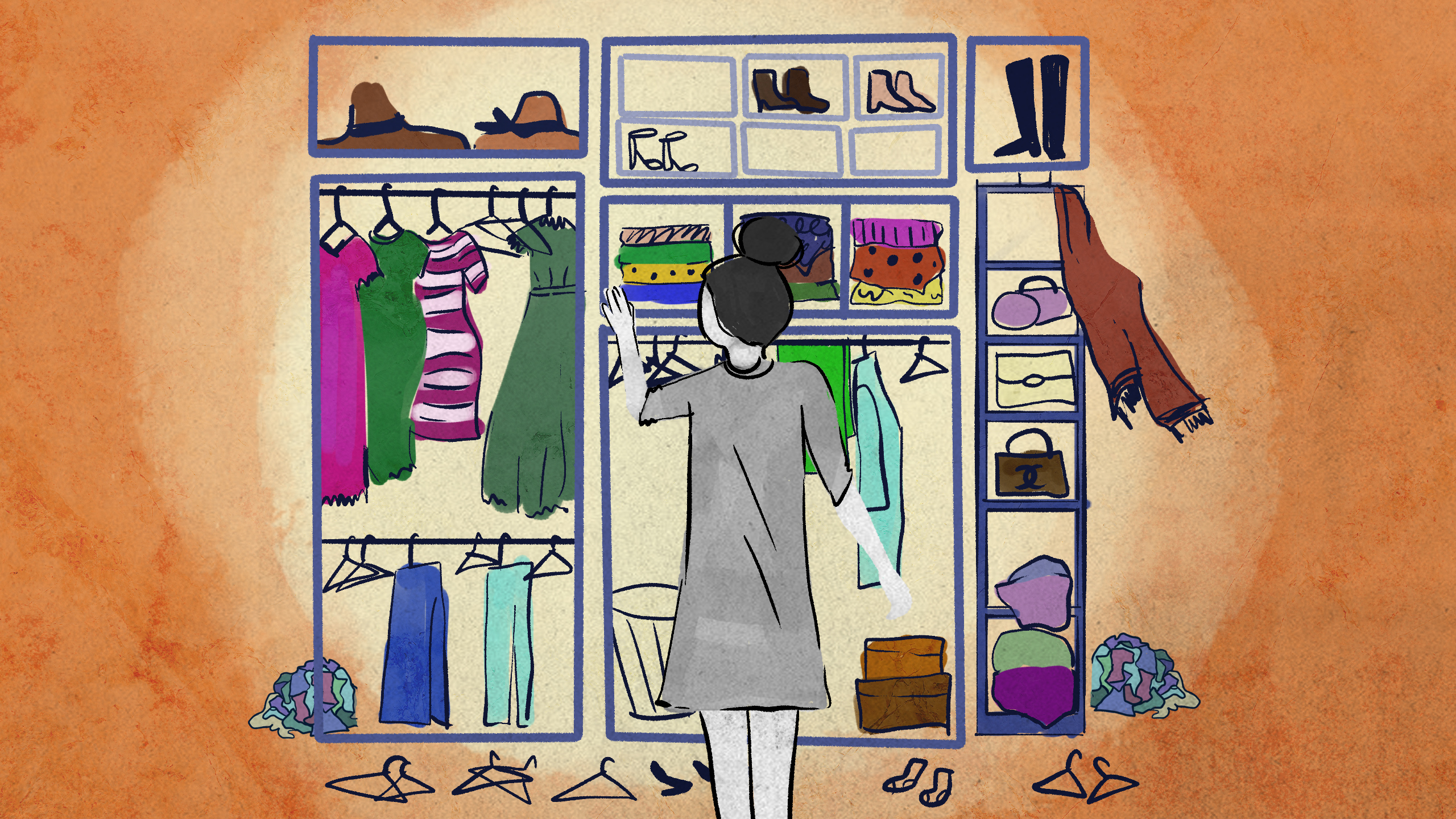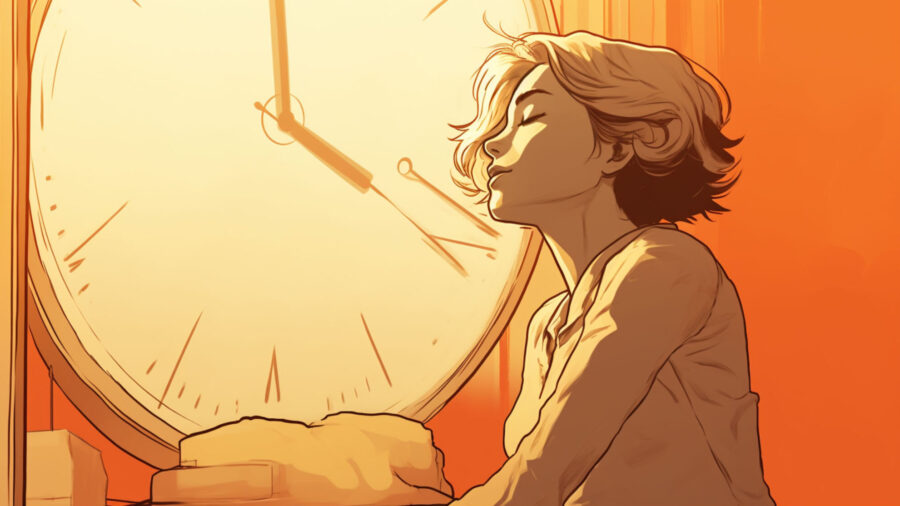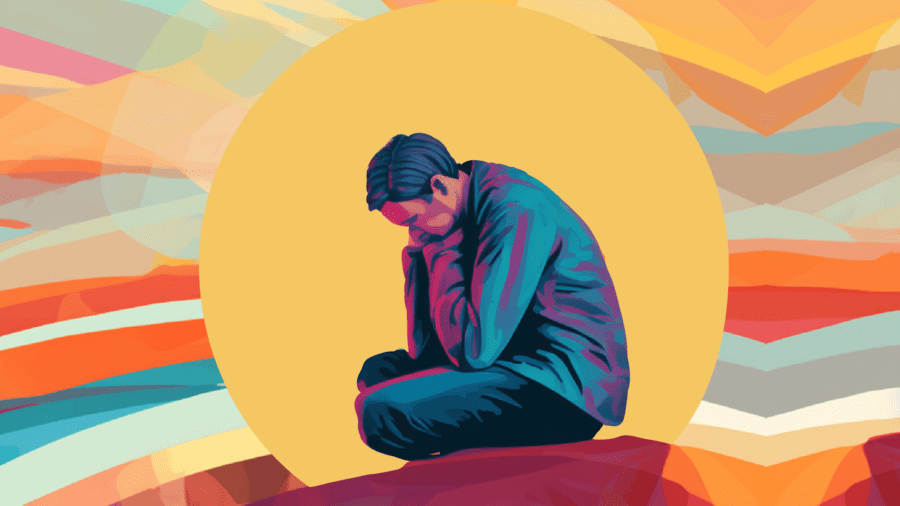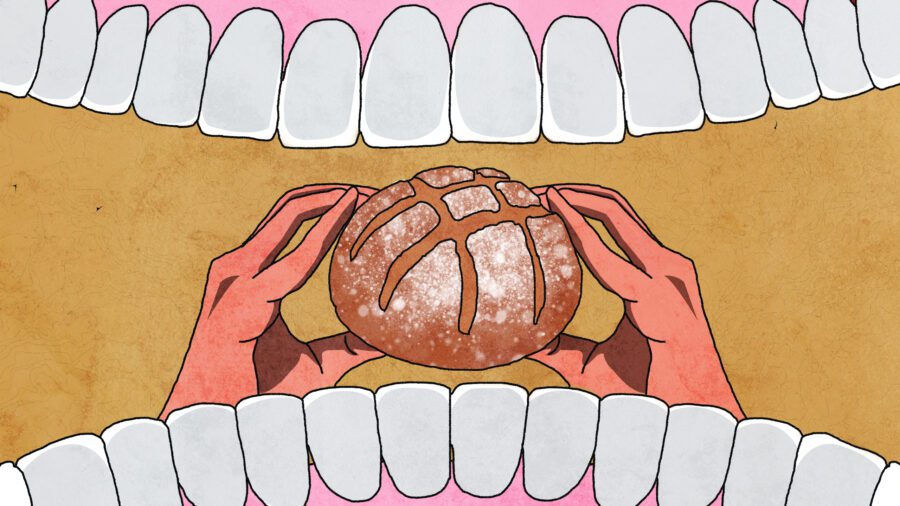
A Minimalist’s Guide to the Psychology of Uncluttering: How to Reclaim Your Space for More Time & Energy
Does it seem like your partner turns the blame back on you no matter what you do?
Some people claim they love existing in chaos amongst the clutter and disarray of a messy home or workspace. Others admit that they can’t even think straight or focus on an activity if there is clutter in their immediate space. So who’s in the right, and who needs to shape up how they keep their living space?
Well, you don’t need us to tell you that every person is different. Some people may actually work more efficiently in an environment that makes them comfortable — for some people, this may be clutter. However, if you feel like your home is being taken over by clutter and don’t know how to get back on track, this article is for you.
Read on to find out how you can reclaim your home from the clutter you created and how living amongst clutter and disorganization can negatively impact your mind and body.
Join In 200 Million+ On The Journey to Greatness
What Is Clutter?
Items that are spread about in a disorderly manner are referred to as clutter. Clutter is the accumulation of things that people don’t need but keep about the house regardless. You probably have some degree of clutter in your home if you answer “yes” to the following questions:
- Do you have things in your home that you no longer need or use, such as outgrown clothing or obsolete technology?
- Do you have a “junk drawer” full of items you keep around in case you might use them someday?
Many people have trouble keeping their living spaces organized, and it’s not always clear why that is the case.
Why Do So Many People Struggle with a Cluttered Living Space?
The propensity to accumulate clutter is influenced by a number of psychological factors. The importance we place on material things may be a contributing element. Since many of us attach emotional significance to the things we own, getting rid of them can feel like we’re also saying goodbye to a piece of ourselves that will never be the same. When it comes to gifts from loved ones or heirlooms passed down through the centuries, this sentimental attachment can run deep.
Perfectionism is another element of our inclination to clutter our living spaces. People who strive for perfection may avoid cleaning and organizing their homes because they worry they will fail at the task. Over time, this might cause an excessive amount of clutter to accumulate.
Cluttering can also be a coping mechanism for people who experience high levels of stress or worry. Some people find that having a crowded home is comforting and familiar and that it helps them forget about the stresses of the outside world. As a simple diversion from more difficult or unpleasant chores, cluttering can be seen as a type of procrastination.
Additionally, disorganization and clutter can result from poor time management and organizational skills. Those who lack these abilities could feel lost and overwhelmed by the prospect of decluttering their homes. It’s possible they just don’t think they have the time to deal with the clutter, which might lead to more of it piling up.
The Psychological Impact of Clutter
In addition to the visible repercussions of clutter on one’s living environment, it is also important to consider the psychological toll this habit can have, though the effects individuals experience from living in a cluttered environment can vary.
For instance, a perfectionist is more likely to experience anxiety in a cluttered environment. However, you may better determine if there is a chance to adjust your physical environment and enhance your mental health by becoming aware of how much clutter you have and whether or not you experience stress as a result.
Increased Stress
The home is supposed to be a place of rest and relaxation, but if it’s cluttered, it’s not so relaxing. One study indicated that during the day, individuals who reported having greater clutter in their houses had higher levels of the stress hormone cortisol.
Procrastination
According to some studies, persons who live in disorganized environments are more likely to put off finishing crucial projects. It might be frustrating to have to rummage through piles of paperwork just to find the bills or to be faced with mountains of dirty laundry when you just want to relax.
Decreased Ability to Focus
It comes as a surprise to no one that distractions abound in a cluttered environment. There is a finite capacity for our brains to process information from incoming sources. If you’re attempting to get some work done at home, for instance, but your space is disorganized, you may find it more difficult to concentrate.
Relationship Issues
Not even interpersonal relationships are safe from the effects that a cluttered living space can have on a person. Couples, partners, and roommates frequently dispute over whose belongings are taking up too much room. If the person you live with finds your clutter annoying, it could put a strain on your relationship. Clutter can also lead to feelings of loneliness and humiliation if it prevents you from inviting people over.
Lowered Quality of Life
Clutter makes it difficult to focus and get things done, which might leave you feeling frustrated the majority of the time. You could be spending that time with loved ones, caring for yourself, or just chilling out if you weren’t wasting time looking for things or trying to organize them.
Impulse Control
A study indicated that people’s poor eating habits were caused by an “out-of-control mind-set” and an untidy eating space. This implies that it may be more challenging to control impulses if one’s mental health is poor and/or if one’s surroundings are chaotic due to a cluttered living space.
Decluttering Your Home – Getting Started
To effectively tackle clutter, it is as vital to pay attention to how doing so affects your emotional experience. You probably already know that it’s not always so simple to just toss anything out, so be aware that anxiety, stress, and even sadness may surface for you. Be sure to talk to a medical or mental health professional if this is the case.
Dedicate an Ample Amount of Time
There’s no denying that clearing out all of your junk can be a huge undertaking, but suppose you instead divided your time into chunks that were easier to handle. If possible, try to spend an hour every weeknight clearing out a certain room.
Remember, it’s okay to proceed slowly. You probably didn’t acquire all of your stuff in a single day, so you probably won’t be able to get rid of it all in a single day, either. It could, however, be a good idea to set a target for how long you spend on each room of your house (i.e., two weeks on the living room and three weeks on the garage). You could even enlist the aid of a reliable friend to help you get started.
Make a ‘Definitely Getting Rid Of’ Pile
Create four heaps, one for items you intend to keep, two for those you intend to donate, and a fourth for trash. Place items you can’t determine what to do with in the fourth pile until you have more time to make a decision. It’s typically easier to start with items that can be thrown away such as expired food, old cosmetics, or anything that’s broken and cannot be fixed. If you want to be sure you’re disposing of things in the right way, it could be beneficial to research local recycling facilities.
Start by asking yourself whether you’ve utilized an item within the last year. If you answered no, then it’s probably okay to donate without any regrets. Seek out nonprofits and other groups who gladly take financial support. Knowing that the items you’re giving away will be appreciated by others can help ease the sadness you may feel at leaving with them.
Items in good condition can also be sold if desired. You can try selling things at a yard sale, on eBay, or at a pawn shop or a thrift store. Making money out of your clutter can also be an added incentive to get organized.
Organize
Keep the things you use most often in easy reach, like in the top drawer of your nightstand or the first cabinet you open while preparing a meal. A good rule of thumb is to attempt to keep surfaces free of miscellaneous items. Keep in mind it’s important to take baby steps when trying to get organized. There may be points along the way where you decide to purchase an extra storage box or tote — just make sure you don’t overstock.
Most importantly, note how things feel as you declutter. When your furniture isn’t obscured by your belongings, are you able to take in its full splendor? Is it nice to finally be able to sit down at your work without having to first clear away piles of paper? To stay motivated on your decluttering quest, remind yourself of how good it feels now that your home is clutter-free.
Keep Your Space Free of Clutter
In the same way that it’s crucial to declutter your home, it’s also crucial to keep it that way. Sticking to a routine is essential for this. For instance, you might spend 10 minutes at the end of each day putting things back where they go. Doing this regularly each day will help you develop a routine of decluttering your space.
If you plan on making a new purchase, you should be sure you don’t already have the item or one like it before buying it again. Also, you should assess whether you will actually use the thing. If you’re like most people, you bought the newest piece of exercise equipment or a shiny new piece of technology just to let it gather dust in a corner.
A tidy, decluttered room can help you feel more in control of your environment and generate a sense of peace. Taking a more conscientious approach to the items you bring into your home (and the ones you choose to let go of) can be beneficial to both your sanity and the longevity of your possessions.
Bonus Tips
Numerous movies, books, podcasts, articles, and even philosophies have been produced on the topic of cleaning up clutter. An excellent example of this is the Japanese art of feng shui, which provides advice on how to arrange furniture and other household items to maximize positive energy flow. Sleeping better may be another benefit of a bedroom decorated in accordance with feng shui principles.
Advice on clearing out your digital space is also abundant and important to remember. You may make your digital environment more manageable by unsubscribing from unnecessary email lists, eliminating unnecessary papers, and sorting your data into folders.
Enhance Your Productivity by Decluttering Your Space
It’s normal to wonder how you managed to amass so many things, but above all else, remember to be kind to yourself. Don’t be too hard on yourself if you stumble along the way. You’re not alone if you feel overwhelmed by your stuff, and blaming or humiliating yourself won’t help. Just be kind to yourself and know that you can accomplish your decluttering objectives when you put in the time and effort.
If needed, expert advice is always best. Therapists and counselors are available to assist you in your quest to declutter your home, should you need their help. The feelings of anxiety, tension, or guilt that may emerge as a result of decluttering can be managed with the help of a therapist. By following the guidance provided in this piece, you’ll be on your way to a decluttered home in no time!
Greatness Authors
Greatness Authors is a collection of writers, thinkers, curiosity experts, and students of the world who are committed to bringing you the most up-to-date, impactful, and inspiring information surrounding Greatness topics.

Do You Have to Be a Morning Person to Be Successful? Here’s What Both Sides Have to Say

9 Reasons You’re Tired All the Time & How to 10x Your Energy

How to Have a Healthy Romantic Relationship Even if You Share Different Beliefs

The 7 Best Vitamins to Naturally Promote Better, Uninterrupted Sleep According to Shawn Stevenson

The Science of Forming Healthy Habits & Letting Go of Bad Ones, According to Author James Clear










